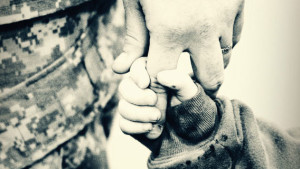The most exciting day of my five-year-old life came when my father asked me whether I would like to steer his truck. I sat on a fat pillow in his lap so that I could see the dirt road over the steering wheel, which I had in a death grip!
“I’ll control the brake, clutch and accelerator while you steer,” my dad said as he slowly moved the truck out into the middle of the road. I didn’t pay any attention when he “rested” his left hand on the steering wheel. I felt safe and secure as we drove slowly over the bumpy road because I knew my father was present and wouldn’t let anything go wrong.
Years later, while thinking about this warm memory with my father, I realised this story had crept up, unnoticed in my mind, to become the guiding metaphor for my faith in God as a Father.
Wrestling with the questions
I spent 10 years as a primary therapist at a Christian hospital with an acute inpatient unit for adolescents. I worked with kids suffering from depression and suicidal thoughts brought on by years of neglect, abandonment and every sort of mental, sexual and physical abuse imaginable.
After the first day, my patients knew I wouldn’t censor them for anything they said in our group sessions as long as what they said reflected how they truly felt.
One evening group session, I asked the kids to tell me what popped into their minds when I said “Hope in God the Father.”
One 15-year-old girl was blunt as a hammer: “I hate God,” she snapped. “God is mean and violent. He kills people if they break any of His rules. I don’t doubt that God exists, but I don’t want Him near me!”
A male patient admitted that he didn’t know what to think of God because He didn’t have all that much to do with his daily life.
A shy 17-year-old girl, who rarely spoke out, said, “Do you believe God ever speaks to us directly sometimes?”
“Yes, I do,” I replied, “but why do you ask?”
She explained that she was praying one night and asked God: “Why can’t I have a good daddy?” (Her father was in prison for molesting her.) “Then I heard these words as clearly as I’m speaking to you: ‘What am I: chopped liver?’ God has been my Daddy ever since. If we’re not crazy, what does something calling our names mean?”
I paused to think a moment, then responded, “I suspect that, unlike adults, teenagers are more open to hearing God’s voice. He calls you by your name because you are precious to Him, your life matters to Him and He will never leave your side. I believe God brings us comfort during awful times so that we won’t feel so alone and helpless.”
I was a little unnerved when several of the kids began rubbing their eyes to hold back tears.
Excluding psychotics, most of the kids I’ve had in group therapy over the years also claim they’ve heard “Something” speak to them. If you dig deeper, behind irreligious teen bravado (or adult bravado, for that matter) you’ll find an aching need to be wrong about the God they’ve come to believe in. They want to believe in God, but too many of their fathers and other adult males have beaten the real “picture” of Him out of their minds, both literally and figuratively.
What about Jesus?
I also wanted my kids to know about Jesus. “Consider this,” I said as I opened the Bible to John’s Gospel: “‘Philip said, “Lord, show us the Father and that will be enough for us.”’ Jesus shocked the disciples with His answer: “ ‘Don’t you know me, Philip, even after I have been among you such a long time? Anyone who has seen me has seen the Father. How can you say, “Show us the Father”?’” (John 14:8, 9).
There was stunned silence. The kids got the significance of what I’d just read but didn’t know what to say.
“Jesus, God the Father and the Holy Spirit are one and the same. We refer to it as the Trinity.” I explained that this is a profound mystery we can know only by faith in God through Christ.
“How can that be true?” one of the girls asked after some thought. “Jesus is so cool. He was really good to people, even children. I can’t imagine Him getting so ticked off that He’d go around killing millions and millions of people. The only people He singled out for a tongue-lashing were the hypocrites and people who He thought were dangerous for kids. He even said millstones, which can weigh hundreds of kilos, should be hung around their necks as they are thrown into the sea as punishment for hurting children.”
A boy remarked, “I like Jesus from what I’ve heard, but I don’t know all that much about Him.”
"I believe God brings us comfort during awful times so that we won’t feel so alone and helpless.”
The subsequent conversation went on for two hours because they didn’t want to stop exploring ideas about God that left them more hopeful for the future, but also anxious, because they were afraid that maybe the whole thing was nothing but talk.
To conclude the group that evening, I told them the story about my father holding me in his lap and allowing me to steer the truck.
“That,” I said, “is how I experience God the Father’s hand on my life all the time: His hand never leaves the wheel.”






